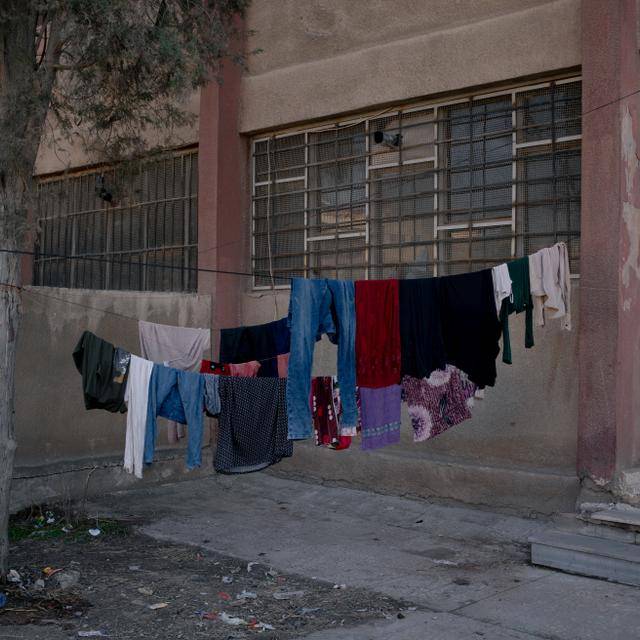Ongoing Instability in Northeastern Syria: A Region in Limbo
Northeastern Syria, a region that has borne the brunt of the country's devastating civil war, remains a hotbed of instability and violence. Despite the relative calm that has prevailed in recent months, the war is far from over, and the region's future hangs precariously in the balance.
The Syrian conflict, which began in 2011, has resulted in the deaths of hundreds of thousands of people, the displacement of millions, and the destruction of entire cities. Northeastern Syria, which borders Turkey and Iraq, has been a key battleground in the conflict, with various factions, including the Syrian government, Kurdish forces, and extremist groups like ISIS, vying for control.
In recent years, the region has witnessed a series of shifting alliances and territorial changes. In 2019, Turkish forces launched a military operation in northeastern Syria, aimed at pushing back Kurdish forces, which Ankara views as a terrorist organization. The operation resulted in the displacement of hundreds of thousands of people and widespread destruction.
Despite the Turkish operation, the region remains volatile, with ongoing clashes between Kurdish forces and Turkish-backed militias. The Syrian government, which has regained control of much of the country, has also been making inroads in northeastern Syria, further complicating the region's dynamics.
The humanitarian situation in northeastern Syria remains dire. Hundreds of thousands of people are in need of assistance, with many struggling to access basic necessities like food, water, and healthcare. The region's infrastructure, including schools, hospitals, and roads, has been severely damaged, exacerbating the humanitarian crisis.
"The war is not over," said Amira Hassan, a resident of the northeastern Syrian city of Qamishli. "We are still living in fear, with the sound of gunfire and explosions a regular occurrence. The international community must do more to support us and bring an end to this conflict."
The international community has been criticized for its response to the Syrian conflict, with many arguing that more needs to be done to support civilians affected by the war. The United Nations has appealed for increased funding to support its humanitarian efforts in Syria, but the response has been inadequate.
"The situation in northeastern Syria is a stark reminder of the devastating consequences of war," said Mark Lowcock, the UN's Under-Secretary-General for Humanitarian Affairs. "The international community must step up its support for civilians affected by the conflict and work towards a lasting peace."
A lasting peace in northeastern Syria will require a comprehensive solution that addresses the region's complex political, economic, and social dynamics. This will necessitate a sustained commitment from the international community, including diplomatic efforts to broker a peace agreement, increased humanitarian support, and investment in the region's reconstruction.
Until then, the people of northeastern Syria will continue to live in a state of limbo, uncertain about their future and vulnerable to the ongoing violence and instability.
The Syrian conflict began in 2011, when protests broke out against the government of President Bashar al-Assad. The protests quickly escalated into a full-blown civil war, with various factions, including the Syrian government, Kurdish forces, and extremist groups like ISIS, vying for control.
The conflict has resulted in the deaths of hundreds of thousands of people, the displacement of millions, and the destruction of entire cities. The Syrian government, backed by Russia and Iran, has regained control of much of the country, but the conflict is far from over.
The humanitarian situation in northeastern Syria is dire. Hundreds of thousands of people are in need of assistance, with many struggling to access basic necessities like food, water, and healthcare. The region's infrastructure, including schools, hospitals, and roads, has been severely damaged, exacerbating the humanitarian crisis.
The UN has appealed for increased funding to support its humanitarian efforts in Syria, but the response has been inadequate. The international community must do more to support civilians affected by the conflict and work towards a lasting peace.
The international community has been criticized for its response to the Syrian conflict. Many argue that more needs to be done to support civilians affected by the war and to bring an end to the conflict.
The UN has played a key role in responding to the humanitarian crisis in Syria, but its efforts have been hindered by a lack of funding and access restrictions. The international community must do more to support the UN's efforts and to work towards a lasting peace in Syria.




No comments yet
Be the first to share your thoughts!